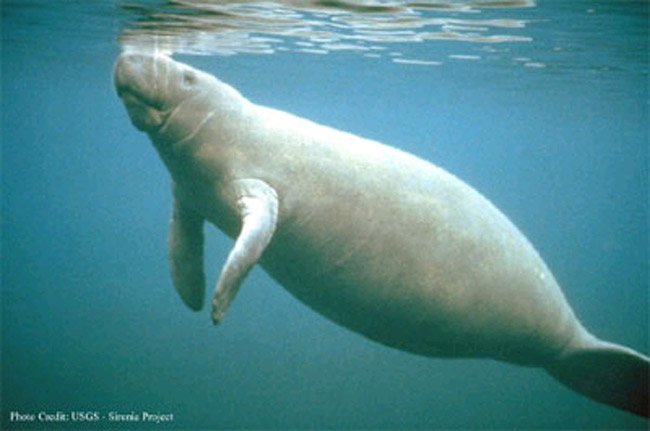Ship Alarm Could Prevent Collisions with Creatures

Big ships can make quite a racket underwater, but marine mammals still collide with boats from time to time. Scientists now understand why and have come up with an alarm-like device that may help avoid these strikes.
Certain acoustic interactions can create situations that mask the sounds of an oncoming ship, and allow it to sneak up and strike down whales and manatees, according to researchers at Florida Atlantic University.
The research shows that the "danger zone" for a marine mammal is the area of water stretching out from the front, or bow, of the ship. Here, a phenomenon known as "acoustic shadowing" can reduce the noise coming from the ship's propellers, the scientists say. The ship's hull can block the high frequency sound waves produced by the propellers, preventing the sound from going forward. Lower frequency sound waves can reach the ship's front, but they are canceled out close to the surface.
These combined acoustic effects allow ships to cast a shadow of silence in front of them.
Right whales in the north Atlantic and manatees near Florida have been particularly affected by boat strikes. The scientists think that these creatures may be confused by the underwater noises near ships, and actually try to hide in the quieter areas in front of them.
But a new device, placed on the ship's bow, may help illuminate this acoustic shadow. The alarm fills the silence with sounds that whales and manatees can hear. The "beam" of sound is very narrow, ensuring it only alerts animals in the boat's path and not wildlife in the surrounding areas. The device was developed by Edmund R. Gerstein and colleagues at Florida Atlantic University.
Tests of the system in Florida's NASA wildlife refuge have been effective so far. Later this year, the Navy and Department of Defense plan to use this device on some of their vessels to warn manatees. A different system to alert whales will be tested next year, the scientists say.
Sign up for the Live Science daily newsletter now
Get the world’s most fascinating discoveries delivered straight to your inbox.
The researchers presented their work at this year's meeting of the Acoustic Society of America on May 21. The study was funded by the U.S. Department of Defense, the Navy Legacy Resource Management Program, and others.
- Video: New Warning System Could Save Manatees
- Video: Gray Whale Population Takes a Dive
- All About the Sea











